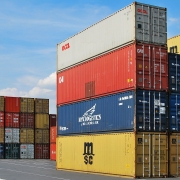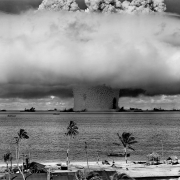How did Taiwan become a successful export economy?
How did Taiwan become an economic power in Asia? In continuation of the previous article pertaining to the contributing factors that led to the economic transformation of South Korea, we will now examine how Taiwan, also known as the ‘accidental nation’, achieved its economic success from the 1960s to the 1990s. Taiwan also undergone a process of rapid industrialisation, shifting its focus from domestic production to export-driven production that propelled the nation to its developed status.
Topic of Study [For H2 History Students]: Paper 1: Understanding the Global Economy (1945-2000) Section B: Essay Writing Theme II Chapter 3: Rise of Asian Tigers from 1970s to 1990s [South Korea and Taiwan]
In the following section, we will focus on four major roles that led to the economic miracle in Taiwan. Take note that these points are to be evaluated based on role and factor comparison, so as to improve your comprehension of these contributing roles to the economic development of Taiwan. For example, you should analyse the varying degrees of importance for government and private businesses in affecting the economic transformation of Taiwan.1. Role of the Government a. Target Setting and Planning Taiwan began its planning phase with the establishment of the Council for United States Aid (CUSA) in 1948, which was later reformed as the Council for Economic Planning and Development (CEPD). The CEPD played the role as a government agency to draft plans and set targets for the economic development of Taiwan. As a planning body, the CEPD decided on the allocation of state resources for the growth of industries, such as the distribution of development funds.
b. Policy Implementation From the 1950s to 1960s, Taiwan’s economic policies were centred on the the implementation of the ‘import-substitution industrialisation’ (ISI) strategy, which focused on the protection of infant industries. For instance, the government introduced import restrictions on consumer goods to protect local firms from external competition. As a result, the agricultural sector flourished, contributing to the growth of the Taiwanese economy. However, the economic contribution of the agricultural sector was low in value. As such, the Taiwanese government shifted its focus to ‘export-oriented industrialisation’ (EOI), which emphasised on the production of exports in capital-intensive industries. The government oversaw this development by passing laws that reinforced export-based production, such as the Provisions for Export Zone in 1965. Consequently, the EOI strategy was met with great success, as evidenced by the domination of numerous exporting goods in the international markets by the 1980s. For example, Taiwan was known for its exports of motherboards and computer terminals as it occupied more than three-quarters of the global exports.2. Role of the Private Businesses [i.e. SMEs] On the other hand, not only the public sector contributed to the economic transformation of Taiwan, but also the private counterpart, particularly the small and medium enterprises (SMEs). In contrast to South Korea, which is known for its few and massive chaebols that dominated the entire economy, Taiwan’s economic growth was driven by the existence of many SMEs. These SMEs played a crucial role in pursuing the goals set by the government, as observed by the large-scale production of exports. In the 1960s and 1970s, SMEs accompanied the government’s focus on EOI by producing standardised light-industry products. These goods were produced and sold at the international markets.
Over time, SMEs dominated the Taiwanese export production, accounting for nearly two-thirds of the entire country’s exports. Given that Taiwan’s economic developed hinged on export gains, this implied that SMEs became the key driver of the economy.3. Role of Culture Although Taiwan had a stark difference in the role of private businesses as compared to South Korea, the cultural factor remained similar, in the sense that favourable cultural influences could explain the remarkable economic performance of Taiwan from the 1960s to 1990s. Taiwan was also shaped by Confucianism, which is a philosophy that encouraged diligence, frugality and respect for authority.
One of the notable consequences of such cultural traits is the emergence of SMEs. In this case, the Taiwanese people were entrepreneurial. Their willingness to innovate and battle against the odds was critical in supporting this significant development. As a result, many business owners possessed the business acumen to deal with economic uncertainties.
Furthermore, the relevance of frugality to economic development can be explained by the high savings rate, which means that many firms have sources of financing to conduct investment activities that propel economic growth even more. Therefore, cultural values were important in helping us to understand the vigour that drives these firms.4. International Developments [i.e. Role of USA] The economic development of Taiwan was also supported by the role of USA, which increased its presence in Asia as a response to the perceived ideological threat of Communism. This response was carried out in the form of advancing economic progress by providing financial aid and other forms of support. For example, Taiwan was given exclusive access to American market and the privilege to impose trade protection temporarily. As such, USA occupied nearly two-fifths of Taiwan’s exports. From 1960s to 1970s, USA became Taiwan’s major export market, accounting for a large proportion of its economic growth.
Points to Ponder Now that you have looked into the four major roles that affected the economic transformation of Taiwan, do consider the following ideas to reinforce your study of this topic for essay writing: – How did the role of SMEs contribute to the economic miracle of Taiwan? – In comparison between South Korea’s chaebols with Taiwan’s SMEs, analyse their approaches in supporting the economic development of these two Asian Tigers. [to be discussed in class]
Are you ready to sit for the A Level History examination? If you are experiencing difficulties in organising your materials and completing your essays on time, fret no more! The H2 and H1 History Tuition feature online discussion and writing practices to enhance your knowledge application skills. Get useful study notes and clarify your doubts on the subject with the tutor. You can also follow our Telegram Channel to get useful updates. We have other JC tuition classes, such as JC Math Tuition and JC Chemistry Tuition. For Secondary Tuition, we provide Secondary English Tuition, Secondary Math tuition, Secondary Chemistry Tuition, Social Studies Tuition, Geography, History Tuition and Secondary Economics Tuition. For Primary Tuition, we have Primary English, Math and Science Tuition. Call 9658 5789 to find out more. A brighter future is within your grasp. Seize the day.










